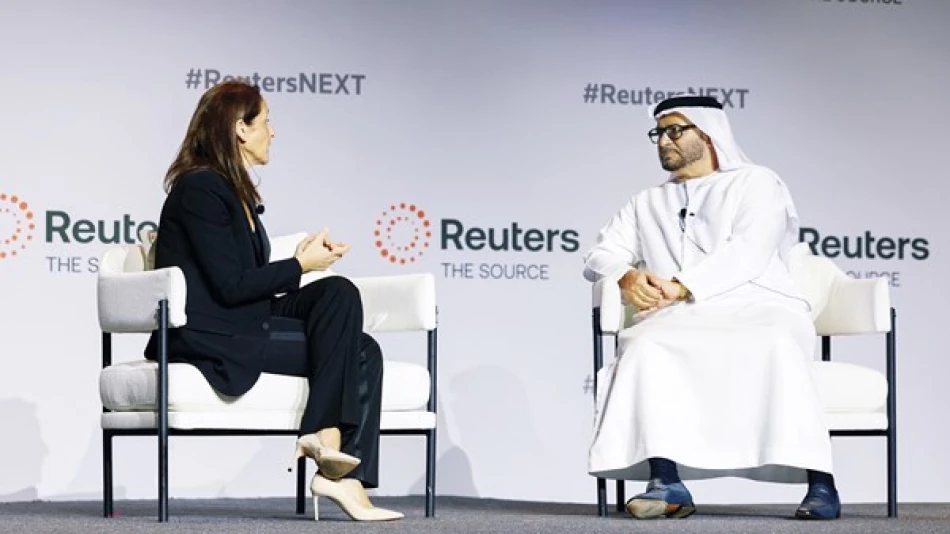
UAE Proposes Innovative Approach to Resolve Conflicts in the Middle East
The UAE's top diplomat called for a major shift in Middle East peace efforts, saying extreme positions on both sides must end if there's any hope of resolving the Israeli-Palestinian conflict. Dr. Anwar Gargash also demanded an immediate ceasefire in Sudan and warned against military rule there.
Speaking at the Reuters Next Gulf summit in Abu Dhabi, Gargash said the Gaza ceasefire that started earlier this month creates an opening, but only if leaders abandon failed approaches. "We have two conflicting nations fighting over one piece of land, and that land must be divided," he said.
The diplomatic advisor to the UAE president took direct aim at Israeli Prime Minister Benjamin Netanyahu's rejection of Palestinian statehood. "Some policies are no longer valid and should not be revived," Gargash said. "Extreme views on the Palestinian issue from the Israeli right must understand that this issue will not disappear."
This puts the UAE in a delicate position. The country signed the Abraham Accords with Israel in 2020, normalizing relations and opening trade ties worth billions. But Gargash made clear that Israeli annexation of West Bank territory would cross a "red line" for the Emirates.
When pressed on whether such annexation could end the Abraham Accords - which President Trump wants to expand to include more Arab nations - Gargash sidestepped. He said the focus should be on making Trump's Gaza peace plan work first.
The current ceasefire faces major hurdles in its next phases. Israel wants Hamas completely disarmed and removed from any future role in governing Gaza. Palestinian officials expect the West Bank-based Palestinian Authority to take control of Gaza after the war, and they're counting on Arab support despite Israeli objections.
Gargash said the Palestinian Authority has announced its willingness to reform, but he noted it needs changes like financial transparency. This suggests the UAE and other Arab states won't back the PA unconditionally.
On Sudan, where civil war has raged for nearly two years, Gargash called for an immediate ceasefire and civilian transition. "People need to feel safe," he said. "Once we're allowed to work there, the UAE will expand its operations." He stressed that Sudan's future must involve civilian transitional leadership, not a military council.
The UAE has faced criticism for allegedly supporting the Rapid Support Forces militia in Sudan's conflict, though it denies direct military involvement. Gargash's comments suggest the Emirates wants to position itself as a stabilizing force in post-conflict Sudan, similar to its role in other regional crises.
These statements reflect the UAE's broader strategy of balancing relationships across the Middle East while pushing for pragmatic solutions. The country has maintained ties with Israel while keeping channels open to Palestinian leaders, and it's positioned itself as a mediator in regional conflicts from Libya to Yemen.
Most Viewed News

 Layla Al Mansoori
Layla Al Mansoori






